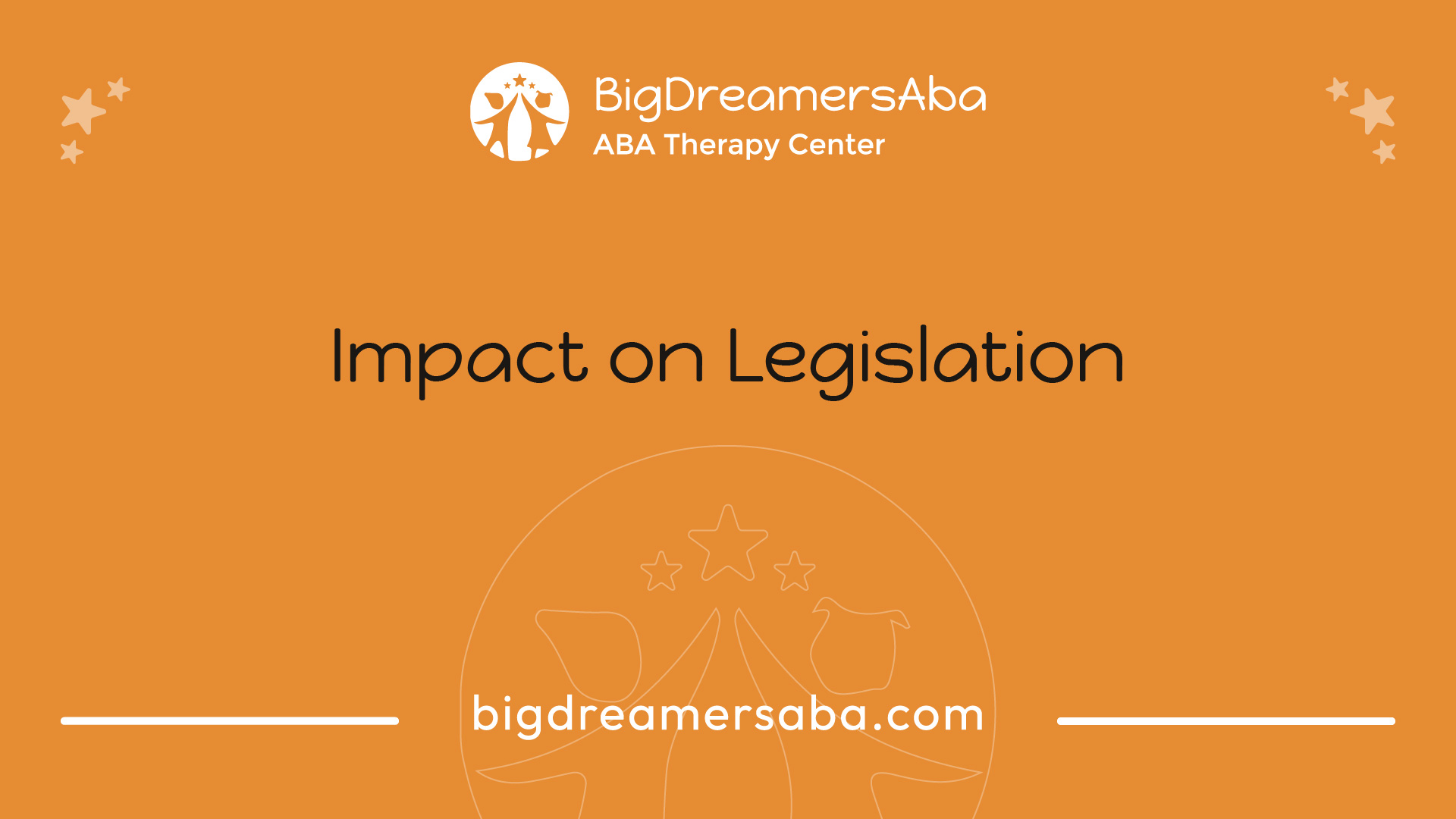Autisms Role in the 2024 Election
Autism takes the spotlight in the 2024 election, shaping policies and public perception. Get informed on the candidates' approaches!

Autism in the 2024 Election
As the 2024 election approaches, autism has emerged as a significant and pressing issue, capturing the attention of political leaders and the general public. The rising prevalence of autism, with approximately 1 in 54 children in the United States being diagnosed with autism, has prompted policymakers to address the needs of individuals on the autism spectrum [1]. The upcoming election emphasizes the crucial role of government policies in shaping the lives of individuals with autism and their families [2].

Political Recognition and Response
Both the Democratic and Republican parties have recognized the importance of addressing autism-related issues in their platforms. Candidates from both parties are acknowledging the need to prioritize early intervention, research, innovation, and resources for individuals on the autism spectrum [2].
The increased attention to autism in political discussions reflects a growing recognition of autism as a significant concern. Policymakers are realizing the importance of developing comprehensive policies that meet the unique needs of individuals on the autism spectrum. This includes ensuring access to appropriate healthcare services, educational support, and employment opportunities.
Impact on Legislation
The recognition of autism in the 2024 election has the potential to influence legislation and shape the future of autism-related policies. The focus on autism during the election campaign draws attention to the challenges faced by individuals on the autism spectrum and their families, raising awareness and driving public discourse.
Legislation related to autism may encompass various areas such as funding for research, early intervention services, job opportunities, and support for individuals with autism transitioning into adulthood. The impact of autism on legislation will depend on the priorities set by the elected officials and their commitment to addressing the needs of the autism community.
By bringing autism to the forefront of the 2024 election, candidates and policymakers have an opportunity to create meaningful change, improve the lives of individuals on the autism spectrum, and promote inclusivity and support for the autism community.
In the following sections, we will explore the approaches of both the Democratic and Republican parties regarding autism-related issues, as well as the role of advocacy and awareness in shaping public perception of autism.

Democratic Approach
The Democratic Party has long been committed to addressing the needs of individuals with autism. In the context of the 2024 election, they have placed a strong emphasis on policies that promote increased funding for research and early intervention services, as well as improvements in mental health care.

Funding for Research
The Democratic Party recognizes the importance of investing in research to deepen our understanding of autism and develop more effective interventions and therapies. They advocate for increased funding to support scientific studies that can uncover new insights into the causes, treatments, and potential cures for autism. By prioritizing research funding, they aim to improve the lives of individuals on the autism spectrum and their families.
Early Intervention Services
Early intervention is a critical component of support for individuals with autism. The Democratic Party emphasizes the need for accessible and comprehensive early intervention services. This includes interventions tailored to the unique needs of each individual, such as behavioral therapies, speech and language therapy, and occupational therapy. By providing early intervention services, the party aims to support individuals with autism in reaching their full potential and enhancing their overall quality of life.
Many Democratic candidates for the 2024 presidential nomination have released comprehensive plans for disability policies, specifically addressing issues affecting people with autism. These plans often include proposals for increased funding for research and early intervention services, reflecting the party's commitment to supporting individuals on the autism spectrum and their families [3].
By prioritizing funding for research and early intervention services, the Democratic Party seeks to create a society that provides comprehensive support for individuals with autism. These efforts aim to improve the understanding of autism, develop effective interventions, and ensure that individuals on the autism spectrum have access to the services they need to thrive.
Republican Approach
In the context of autism and the 2024 election, the Republican Party's approach differs from that of the Democrats. Republicans tend to emphasize individual responsibility, self-sufficiency, and employment opportunities for adults with autism, aiming to empower them to lead independent and fulfilling lives [4]. While their approach may not prioritize increased funding for research to the same extent as the Democrats, they recognize the importance of providing opportunities for individuals with autism to thrive independently [3].
Emphasis on Individual Responsibility
The Republican Party's approach to autism emphasizes individual responsibility, focusing on self-sufficiency and personal accountability. They believe in empowering individuals with autism to take charge of their own lives and make decisions that align with their goals and aspirations. This approach promotes the idea that individuals with autism can actively contribute to society and lead fulfilling lives by taking ownership of their actions and choices.
Employment Opportunities
Job creation and employment opportunities for adults with autism are key priorities for the Republican Party. They believe in fostering an inclusive and diverse workforce that values the unique perspectives and talents of individuals with autism. By promoting employment opportunities, Republicans aim to facilitate the integration of individuals with autism into the workforce, enabling them to achieve financial independence and contribute meaningfully to society.
Recognizing the importance of employment, the Republican Party supports policies and initiatives that encourage businesses to provide accommodations and create inclusive workplaces for individuals with autism. By fostering an environment that values diversity and promotes equal opportunities, Republicans aim to empower individuals with autism to thrive professionally.
While the Republican Party's approach to autism may differ from that of the Democrats, it is important to note that policies and positions within the party may vary. However, the overarching focus remains on individual responsibility, economic growth, and job creation, with the aim of providing opportunities for individuals with autism to lead fulfilling and independent lives [3].
Understanding the Republican Party's approach to autism provides valuable insights into the diverse perspectives and strategies aimed at addressing the needs and priorities of individuals on the autism spectrum. It is through the collective efforts of both parties that progress can be made in creating a more inclusive and supportive society for individuals with autism.
Advocacy and Awareness
As autism moves to the forefront of the 2024 election, the role of autism advocacy organizations becomes increasingly important. These organizations are dedicated to improving the lives of individuals with autism and their families through various initiatives, including raising public awareness, promoting acceptance, and advocating for policies that address the unique challenges faced by the autism community [1].
Role of Autism Advocacy Organizations
Autism advocacy organizations play a crucial role in amplifying the voices of individuals with autism and their families. Through their advocacy efforts, these organizations strive to ensure that the needs and concerns of the autism community are recognized and addressed in the political sphere. They work tirelessly to engage with policymakers, politicians, and community leaders to promote policies and legislation that improve the lives of individuals with autism.
These organizations also provide valuable support and resources to individuals with autism and their families. They offer guidance on navigating the healthcare and education systems, connect families with relevant services, and provide a platform for sharing experiences and finding support networks. By fostering a sense of community and empowerment, these organizations contribute to the overall well-being and quality of life for individuals with autism.
Shaping Public Perception
In addition to their advocacy efforts, autism advocacy organizations play a crucial role in shaping public perception of autism. They work tirelessly to dispel misconceptions and stereotypes surrounding autism, promoting a greater understanding and acceptance of individuals on the autism spectrum. Through public awareness campaigns, educational initiatives, and community outreach programs, these organizations strive to create a more inclusive and supportive society for individuals with autism.
By sharing stories, experiences, and success stories of individuals with autism, these organizations help to break down barriers and challenge stigmas associated with autism. Their efforts aim to create a society that values and embraces the unique strengths and contributions of individuals on the autism spectrum.
As the 2024 election approaches, the active participation and engagement of autism advocacy organizations are crucial in ensuring that autism remains a relevant and important topic in the political discourse. Their dedication and commitment to advocating for the rights and well-being of individuals with autism contribute to driving positive change and shaping policies that address the needs of the autism community.
To learn more about autism advocacy organizations and how to get involved, visit our article on how to choose an autism charity.
By raising awareness, advocating for policy changes, and promoting acceptance, autism advocacy organizations play a vital role in ensuring that the voices of individuals with autism are heard and that their unique needs are addressed in the political landscape. Through their efforts, they contribute to creating a more inclusive and supportive society for individuals on the autism spectrum.
Candidate Policies
As autism moves to the forefront of the 2024 election, candidates from the Democratic Party have recognized the importance of addressing the needs of the autism community and have incorporated autism-related issues into their platforms. Many of the top contenders for the Democratic presidential nomination have released comprehensive plans for disability policies, specifically addressing issues affecting people with autism. Let's take a closer look at the Democratic presidential nominees and their disability policies.
Democratic Presidential Nominees
The Democratic presidential nominees for the 2024 election have shown a commitment to supporting individuals with disabilities, including those with autism. They have released comprehensive plans that aim to address the unique challenges faced by individuals on the autism spectrum.
While each candidate may have their own specific approach, there are common themes within their disability policies. These policies focus on healthcare, education, and support services to ensure individuals with autism can reach their full potential. The Democratic nominees recognize the importance of early intervention services and the need for increased funding for research to deepen our understanding of autism and develop more effective interventions and therapies.
By addressing these issues, the Democratic presidential nominees aim to provide comprehensive support for individuals with autism and their families, helping them thrive in all aspects of life.
Disability Policies Overview
The disability policies put forth by the Democratic presidential nominees cover a wide range of areas that impact individuals with autism. These policies aim to create a more inclusive society and ensure equal opportunities for all. Here are some key aspects of their disability policies:
Through their disability policies, the Democratic presidential nominees aim to create an inclusive society that values and supports individuals with autism. By prioritizing increased funding for research, early intervention services, and mental health care, they seek to improve the lives of individuals on the autism spectrum and ensure they have the necessary resources to thrive.
As the 2024 election approaches, the focus on autism and disability issues by the Democratic Party highlights the growing recognition of the importance of addressing the needs of the autism community in the political landscape.
To learn more about the history and timeline of autism, as well as other topics related to autism, feel free to explore our articles on Autism Daily.
Public Perception Shift
As autism takes center stage in the 2024 election, there has been a notable shift in public perception and awareness, moving from stigmatization to acceptance. The increased attention to autism in political discussions has played a crucial role in shaping public discourse and understanding of autism [1]. Let's explore the factors contributing to this significant change.
From Stigmatization to Acceptance
In the past, individuals on the autism spectrum often faced stigmatization and misconceptions. However, the increased focus on autism in the 2024 election has helped challenge these stereotypes, leading to greater acceptance and recognition of neurodiversity.
As policymakers address the needs of individuals on the autism spectrum, there is a growing understanding that autism is not a weakness or a flaw, but a unique way of experiencing the world. This shift in perception has paved the way for greater inclusion, support, and opportunities for individuals with autism and their families.
Media coverage has played a crucial role in shaping public perception and promoting acceptance. News outlets, documentaries, and personal stories shared through various platforms have shed light on the experiences, challenges, and strengths of individuals with autism. This increased visibility has helped dispel myths and foster empathy, leading to a more inclusive society.
Media Influence on Awareness
The media's influence on awareness of autism cannot be understated. Through accurate and informative reporting, the media has been instrumental in educating the public about autism and raising awareness of the diverse range of abilities and perspectives within the autism community.
Television programs, movies, and books featuring characters on the autism spectrum have also played a significant role in shaping public perception. By portraying authentic and relatable characters, these media representations have helped humanize autism and foster understanding among viewers.
Social media platforms have further amplified the voices of individuals with autism and their advocates. Through personal stories, educational content, and advocacy efforts, social media has served as a powerful tool in increasing awareness and promoting acceptance.
Overall, the increased attention to autism in the 2024 election has sparked a positive shift in public perception, moving from stigmatization to acceptance. Through media coverage and the sharing of personal stories, the public has gained a better understanding of autism, leading to increased empathy and support for individuals on the autism spectrum. As this awareness continues to grow, it is crucial to prioritize policies and initiatives that promote inclusivity and provide necessary resources for individuals with autism and their families.
References
[2]:
[3]:
[4]:
Recent articles

The Role of Reinforcers in ABA Therapy Programs

How to Maintain ABA Therapy Progress During School Breaks
